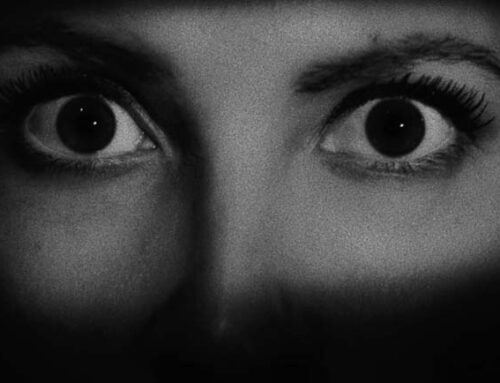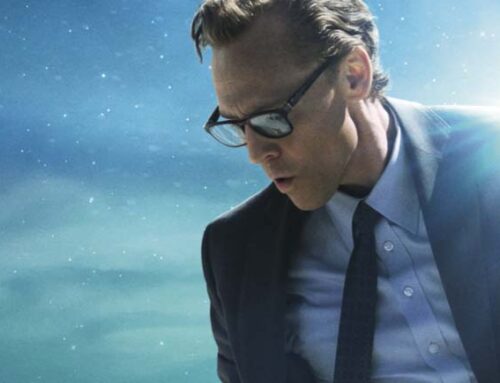 The Holly Kane Experiment, directed by Tom Sands and written by Mick Sands, follows Holly Kane (Kirsty Averton), a psychologist that has discovered a combination of drugs and subliminal messaging to reprogram and potentially brainwash subjects, becoming lost in a world of unfamiliar faces and mysterious agendas as she struggles with her own mental fragility.
The Holly Kane Experiment, directed by Tom Sands and written by Mick Sands, follows Holly Kane (Kirsty Averton), a psychologist that has discovered a combination of drugs and subliminal messaging to reprogram and potentially brainwash subjects, becoming lost in a world of unfamiliar faces and mysterious agendas as she struggles with her own mental fragility.
Holly is a troubled woman, capable and at the top of her field in psychology, but burdened with obsessive thoughts about her sister’s paranoid delusions and the fear that she will suffer the same fate, to the point where she is experimenting with cocktails of exotic hallucinogens and is seen listening to an audio track assuring herself of her own sanity throughout the film as a way to gain a sense of control over her mind. One day, seemingly at random, she receives a call from a famous psychologist and personal hero, Marvin Greenslade (Nicky Henson), who offers the incredible opportunity of allowing her to conduct trials of her method along with covering her ass in terms of liability. What initially seems like her big break ends up becoming a nightmare, however, as she finds herself a pawn in something much bigger and more sinister than she could have ever expected, and her only way of putting the pieces together might be the disheveled, conspiracy theory-obsessed drifter Dennis MacIntyre (James Rose).
The Holly Kane Experiment ended up being a pretty enjoyable watch. It’s squarely in the psychological thriller genre, with its major source of intrigue being the layers of gaslighting and manipulation being filtered through the perception of someone already suffering from a great deal of paranoia over what is real and what isn’t. Holly is an intriguing character, likable and sympathetic, but neurotic and at times ethically questionable. She receives questionable cocktails containing every sort of psychedelic mushroom under the sun from her dealer Jeannie (Lindsey Campbell) which she uses both on herself and on her patients, one of the early scenes showing her being sued for medical malpractice.
The film’s greatest strength is the dynamic between Marvin and Holly. Henson is an imposing presence, and plays the role of Marvin with a sinister and not altogether charming charm, a man of means and influence, but possessing a sort of sociopathic innocence that is unbecoming of a man his age and gives his inevitable seduction of the much younger Holly more of a repulsion factor than it would have otherwise. Unfortunately, the chemistry elsewhere isn’t as compelling. The relationship between Holly and Dennis seems forced and I never sensed much chemistry there outside of him serving as a sort of ironic connection to reality as things start to spiral. The plot with Jeannie also gets a lot more focus toward the latter part of the film and her actions didn’t end up feeling particularly justified in the context of how her character and her relationship with Holly had been portrayed up to that point.
Technically, the cinematography is largely clean and conservative, saving its bolder choices for small punches of dreamlike surrealism that serve the film well, along with a sparse and discordant score that heightens the sense of paranoia and unease. While the writing is lacking in some areas, the narrative is one that lends itself very well to the psychological thriller genre and fans of that sort of thing should find a lot to like here.
| The Holly Kane Experiment | ||
| RATING: | UR | |
| Runtime: | 1hr. 43Mins. | |
| Directed By: | Tom Sands | |
| Written By: | Mick Sands | |







